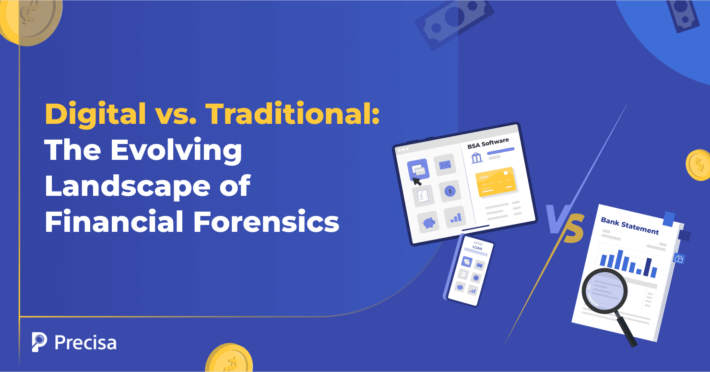How Do Fintech Companies Alleviate Customer Problems and Burdens Amid Inflation?

As per reports, the inflation rate for October 2022 was 6.8%; for the year 2021, the annual inflation rate was 5.1% in India. Inflation is on the rise, not only in India but globally.
Increasing inflation impacts both consumers and companies – businesses have to deal with the rising cost of production and consumers with diminished purchasing power.
Fintech companies, an integral part of the financial ecosystem, help consumers negotiate the rising cost of living and help them stay solvent. The article looks at various ways fintech companies can alleviate customer problems due to growing inflation.
Fintech Companies: An Overview
Fintech is the meeting of finance with technology; fintech companies employ technology to improve the delivery of their financial services. These businesses use technology to simplify financial services like insurance, mortgage, savings, investment, financial management, and budgeting, to name a few.
Mobile phones have been a game changer in consumer behaviour and have played the role of catalyst in fintech innovations. As per reports, the fintech space has grown tremendously in India in the last decade, and India has an adoption rate of 87% compared to the global average of 64%.
Role of Fintech Companies in Alleviating Customer Burden Amid Inflation

The financial services sector has the onus to create ethical business models that meet customer demands while keeping themselves safe, especially in the current financial landscape. More and more financial establishments are adopting fintech to provide a better consumer experience and ensure fair treatment of vulnerable customers.
Here are a few ways fintech companies can help consumers deal with inflation.
1. Introduction of Buy Now Pay Later (BNPL)
The Buy Now Pay Later (BNPL) option offered customers significant relief during the Covid-19 pandemic. Consumers were able to manage their households easily by leveraging BNPL services for buying essentials, which in turn boosted retailers’ sales and growth. However, BNPL schemes were not very successful and did not last beyond the pandemic due to the growing inflation. The looming recession and the economic challenges that followed the pandemic made it more challenging for customers to repay their debt.
However, BNPL is on an uptrend, especially among the younger users who are more tech-savvy. Such users are always on the lookout for improved ways to experience financial independence on their terms; BNPL lets them do just that.
Additionally, people who don’t have credit cards can access a wide range of services and products without obtaining a loan with the help of BNPL.
Going forward, fintech companies can utilise tools like the Bank Statement Analyser by Precisa for intelligent decision-making. This cloud-based statement analyser can also help lenders reduce NPAs.
2. Better financial management
Fintech companies help consumers save money on financial transactions paid as bank fees or charges. Fintechs provide more affordable and transparent solutions as compared to conventional banks. They also help connect the end customer with the service provider through payment apps and wallets.
Apart from flexibility and speed, the use of high-end technology enables cost-saving. Many e-wallet companies and other payment platforms provide rewards and discounts to customers to encourage them to use their services or stay loyal, adding to the benefit for the customer.
Fintech companies offer low or no-fee products to ease the financial burden for their customers. Some may offer secured credit cards with no annual fees and no interest; this is a preferred option compared with traditional credit cards.
Facilities like early access to wages can help customers avoid overdrafts or late payment charges. Customers and financial service providers can benefit from the use of Precisa’s Bank Statement Analyser for making better credit decisions.
Some fintech companies provide customers tools for better money management when they face a financial crunch. These tools can help them track expenses and ultimately reduce bills and encourage savings.
In addition, fintech companies offer cheaper loans with lower overhead costs. Fintech lending, unlike traditional lending mechanisms based on balance sheets, relies on cash-flow-based lending criteria. Loan approvals are system driven rather than based on discretionary powers.
Fintech lending uses alternate data sources like payment records of utility bills, EPFO, etc., for decision-making.
This non-reliance on traditional approval mechanisms allows more customers to access credit and lowers expenses. More people can get loans at lower costs.
3. Innovative investment opportunities
Fintech companies are reviewing their product mix to provide their customers with a diverse range of investment options. Growth-oriented investment products like Exchange Traded Funds(ETFs) can help deal with inflation by offering returns that beat inflation.
ETFs, in essence, are mutual funds that track market indices like the NIFTY in India and NASDAQ in the US. They offer an investor greater diversity and have lower expense ratios. Market indices comprise large-cap firms that tend to grow faster than the economy and can help the customer beat inflation in the medium to long term.
ETFs still haven’t gained popularity in India; few fintech companies provide a platform to invest in overseas ETFs, thereby expanding the investor’s portfolio diversification.
Fintech companies offer investors a platform to invest in products like stocks, MFs, derivatives, and emerging products, including cryptocurrency and NFTs. Some fintech companies help you create curated personalised portfolios as well.
Takeaway
Inflation continues to grow unabated and is constantly impacting the customer’s financial capacity and the returns on investment. However, the fintech space is also expanding rapidly.
Fintech companies are helping consumers make better choices that can help them save money and scout for better deals. The use of technology provides investors with a better range of products which can help them beat inflation and also save transaction costs.
Explore innovative solutions from Pecisa here!



